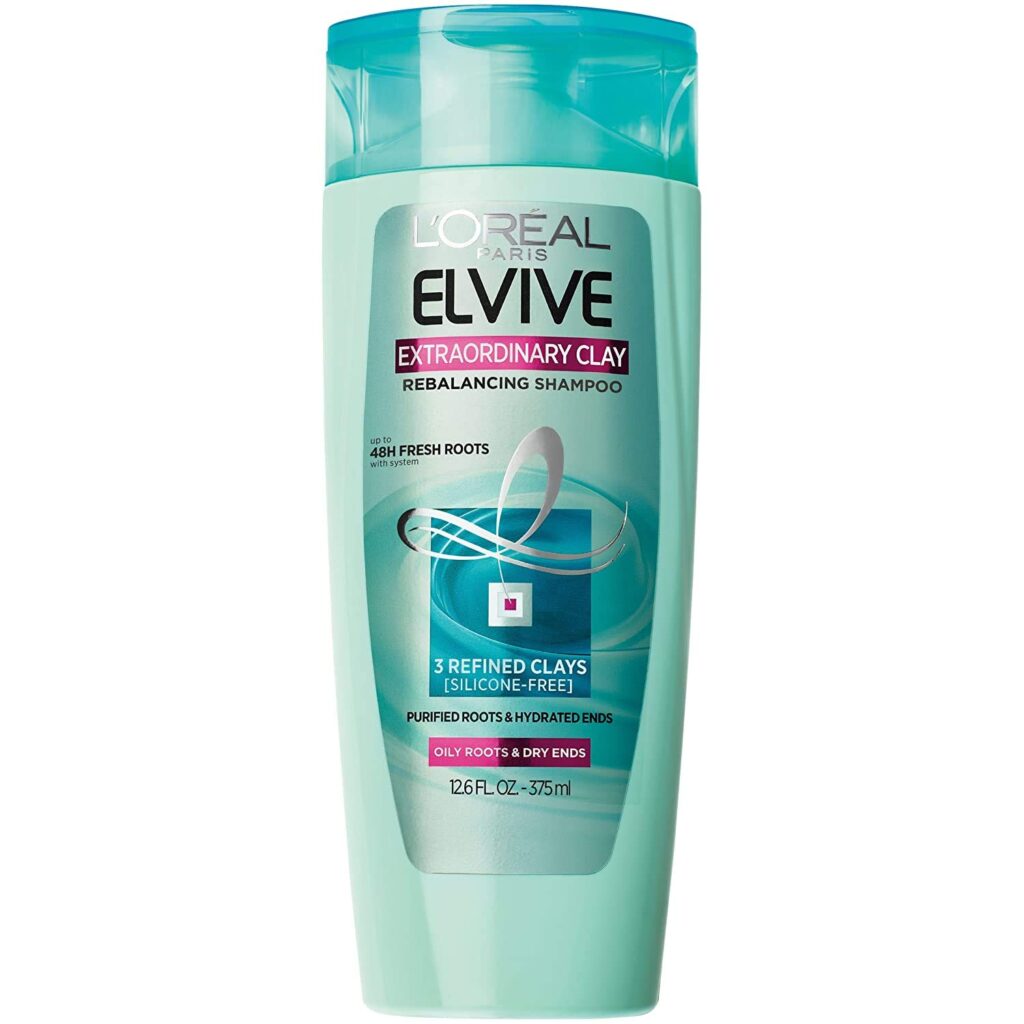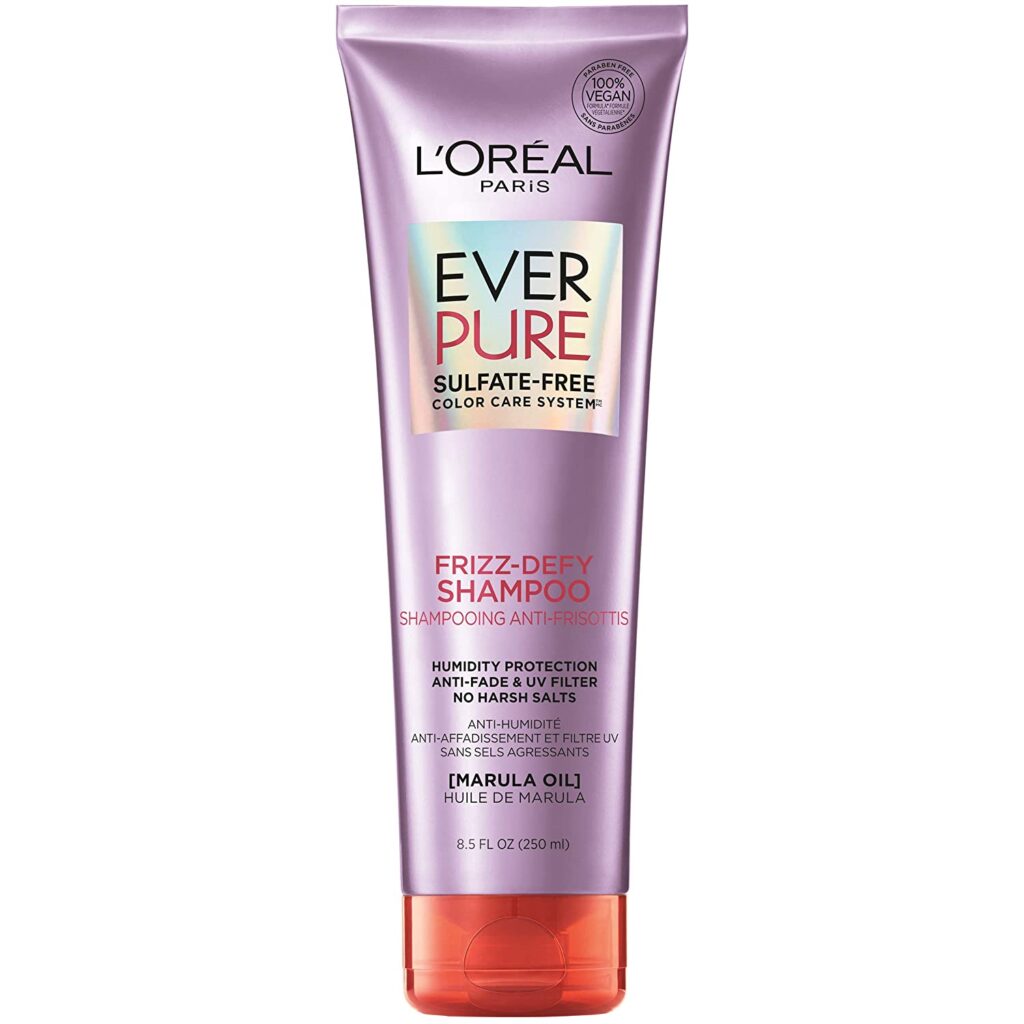Thick, oily hair can be a double-edged sword—gorgeous when managed, but a nightmare when it's not. If you're struggling to find the best shampoo and conditioner for thick oily hair, you're not alone. Many people with this hair type face challenges such as excessive oil production, flatness, and difficulty maintaining volume. This guide will help you navigate the right products to achieve healthier, more manageable hair.
Thick and oily hair requires a delicate balance of cleansing and nourishment. While some shampoos strip the scalp of its natural oils, others leave it feeling greasy and weighed down. The key is finding products that target oil without compromising moisture. In this article, we'll explore the science behind thick oily hair, recommend top-rated products, and provide actionable tips for managing your mane.
Whether you're dealing with limp strands, excessive sebum, or simply looking for a healthier hair regimen, this guide is packed with expert advice and product recommendations tailored specifically for your hair type. Let's dive in!
Read also:Unpacking The Impact Of Comment Bomb A Comprehensive Guide
Table of Contents
- Understanding Thick Oily Hair
- Factors Contributing to Thick Oily Hair
- Best Shampoos and Conditioners for Thick Oily Hair
- How to Choose the Right Product
- Tips for Managing Thick Oily Hair
- Common Mistakes to Avoid
- The Science Behind Hair Care
- Home Remedies for Thick Oily Hair
- Comparison of Popular Products
- Conclusion
Understanding Thick Oily Hair
Thick oily hair is characterized by strands that are both voluminous and prone to excessive oil production. This hair type can be challenging because it requires a product that cleanses deeply without stripping the hair of essential moisture. To better understand this hair type, let's break it down:
What Makes Hair Thick and Oily?
The thickness of hair is determined by the diameter of each strand, while oiliness is influenced by the activity of the sebaceous glands. Thick hair tends to produce more sebum, which can lead to a greasy appearance if not managed properly.
Why Does This Matter?
Selecting the best shampoo and conditioner for thick oily hair involves understanding how these products interact with your scalp and hair. Products designed for oily hair often focus on cleansing, while those for thick hair emphasize volume and hydration. Balancing both needs is crucial for achieving healthy, manageable locks.
Factors Contributing to Thick Oily Hair
Several factors contribute to the development of thick oily hair. These include genetics, hormonal changes, lifestyle habits, and the products you use. Below are some key contributors:
- Genetics: If your family has a history of thick, oily hair, chances are you inherited this trait.
- Hormones: Fluctuations in hormones, especially during puberty, pregnancy, or menopause, can increase sebum production.
- Environmental Factors: Pollution and humidity can exacerbate oiliness and weigh down thick hair.
- Product Build-Up: Using heavy conditioners or styling products can make hair appear greasier and more limp.
Best Shampoos and Conditioners for Thick Oily Hair
When it comes to choosing the best shampoo and conditioner for thick oily hair, it's important to prioritize ingredients that cleanse deeply while maintaining moisture balance. Here are some top recommendations:
1. Herbal Essences Bio: Renew Anti-Residue Shampoo
This sulfate-free formula gently removes product build-up and excess oil, leaving hair feeling refreshed and lightweight. It's perfect for those who want a natural solution without compromising on effectiveness.
Read also:How To Find Gore A Comprehensive Guide For Responsible Exploration
2. Neutrogena Anti-Residue Shampoo
Designed to eliminate residue and oil, this product is ideal for thick oily hair. Its formula is lightweight and won't weigh down your strands, making it a great choice for daily use.
3. OGX Biotin and Collagen Conditioner
While conditioners for oily hair might seem counterintuitive, this product strikes a balance between hydration and volume. It strengthens thick hair while preventing it from feeling greasy.
How to Choose the Right Product
Selecting the best shampoo and conditioner for thick oily hair involves considering several factors:
- Ingredients: Look for formulas containing salicylic acid, tea tree oil, or menthol, which help regulate oil production.
- Texture: Opt for lightweight, non-greasy products that won't weigh down your hair.
- Frequency of Use: Choose a daily cleanser if you wash your hair often or a clarifying shampoo for occasional deep cleaning.
Reading reviews and consulting with a dermatologist or hairstylist can also provide valuable insights into which products work best for your specific needs.
Tips for Managing Thick Oily Hair
Beyond choosing the right shampoo and conditioner, there are several strategies you can employ to manage thick oily hair:
1. Wash Less Often
Washing your hair too frequently can strip it of natural oils, prompting your scalp to produce even more sebum. Try washing every other day or using dry shampoo in between washes.
2. Use Cool Water
Hot water can irritate the scalp and increase oil production. Rinse your hair with cool water to seal the cuticle and reduce grease.
3. Focus on Scalp Care
Massaging your scalp while shampooing helps distribute natural oils evenly and promotes healthier hair growth. Consider incorporating a scalp scrub into your routine for added benefits.
Common Mistakes to Avoid
Even with the best intentions, certain habits can worsen thick oily hair. Here are some common mistakes to avoid:
- Overwashing: Washing your hair too often can strip it of moisture and lead to increased oil production.
- Using Heavy Products: Creamy conditioners and styling products can weigh down thick hair and make it appear greasier.
- Ignoring Scalp Health: A healthy scalp is essential for maintaining balanced oil production. Neglecting it can exacerbate oiliness.
The Science Behind Hair Care
Understanding the science behind hair care can help you make more informed decisions about your routine. Sebum, the natural oil produced by the scalp, plays a vital role in protecting and moisturizing hair. However, excessive sebum can lead to greasiness and flatness, especially in thick hair.
Shampoos and conditioners work by altering the pH balance of your scalp and hair. A balanced pH helps regulate oil production and promotes healthier strands. Products with the right pH level can cleanse effectively without stripping your hair of essential nutrients.
Home Remedies for Thick Oily Hair
For those looking for natural solutions, home remedies can be an effective way to manage thick oily hair. Here are a few ideas:
- Apple Cider Vinegar Rinse: This remedy helps balance the scalp's pH and remove product build-up, leaving hair feeling cleaner and lighter.
- Clay Masks: Bentonite or kaolin clay masks can absorb excess oil from the scalp, providing a deep-cleansing experience.
- Tea Tree Oil: Known for its anti-inflammatory and antiseptic properties, tea tree oil can soothe the scalp and reduce oil production.
Comparison of Popular Products
To help you make an informed decision, here's a comparison of some popular shampoos and conditioners for thick oily hair:
| Product | Key Features | Pros | Cons |
|---|---|---|---|
| Herbal Essences Bio: Renew | Sulfate-free, anti-residue formula | Gentle on hair, removes build-up | May not be strong enough for very oily scalps |
| Neutrogena Anti-Residue | Deep-cleansing, clarifying shampoo | Effective at removing oil and residue | Can be drying if used too frequently |
| OGX Biotin and Collagen | Hydrating, volumizing conditioner | Strengthens hair, adds volume | May feel heavy on fine hair |
Conclusion
Managing thick oily hair requires a combination of the right products, techniques, and habits. By choosing the best shampoo and conditioner for thick oily hair and incorporating tips for scalp care and home remedies, you can achieve healthier, more manageable locks.
Remember, consistency is key. Stick to a routine that works for your hair type and don't hesitate to consult with professionals if needed. Share your thoughts and experiences in the comments below, and don't forget to explore other articles on our site for more hair care advice!



